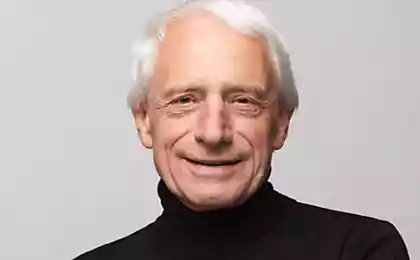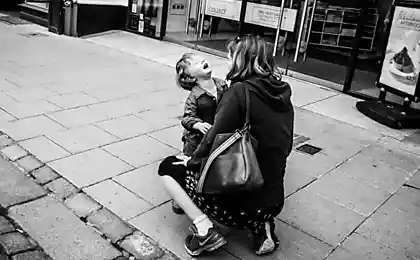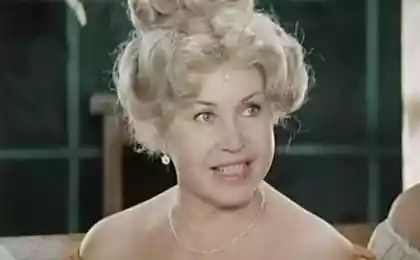454
How to Deal with an Existential Crisis
Despite the mystery of being, many of us are able to cope with our lives and avoid the forces-undermining feelings of despair, personal failure, and all-encompassing meaninglessness. But from time to time we are pulled out of self-satisfaction and forced to reevaluate our lives. Here’s what you need to know about existential crises and how to deal with them.
The American Psychiatric Association did not include a description of an “existential crisis” in the DSM-5 (Diagnostic and Statistical Manual of Mental Disorders 5). Psychologists and psychotherapists are familiar with it. They describe the condition as “existential anxiety.”

Existential crisis can manifest itself in many forms, but its fundamental aspect is deep doubts and a sense of unhingedness about itself, its very essence and its significance in the world.
“Existential crisis is often relative in nature, meaning that people’s attitudes toward everything and everyone around them are questioned,” says Jason Winkler, a Toronto-based psychotherapist who specializes in the field. Being-in-the-world is carefully considered in an existential crisis, and often there are no answers to the questions that arise. Usually, a person feels completely disconnected, existentially alone and confused – even in spite of many loving friends and family, a successful career and professional reputation, material wealth, and religious/spiritual faith.
Winkler says the existential crisis is all-encompassing and can permeate every aspect of life. It manifests itself in many different ways, including a loss of meaning, a sense of deep disconnection from loved ones, despair and dread of being (for example, a lot of thinking about “what-what-what-what-what-what-what-what-if-what?”), and a preoccupation with worries about global life issues, such as: why am I here? Do I mean anything? What is my place in the universe?
Psychotherapist Katharine King, also from Toronto, believes that existential anxiety manifests itself differently in people, depending on their social status.
“For example, both aging and death-related people (e.g., in the family line or at work) may experience heightened existential anxiety about death, the so-called ‘fear of death’,” she told io9. Some of King's clients are experiencing a painful preoccupation with the fear of death.
“These clients are struggling with questions that many of us manage to force out of our daily thoughts,” King said. In therapy, they may ask questions like: Why live our lives to the fullest if we die anyway? What will be left of me when I die? Will I be remembered? How exactly?
For these clients, the fear of death can be experienced as the greatest horror that overwhelms them after stress or loss. It is not just a fact of existence flashing in the background of their consciousness. It's a crushing burden.
But, as King points out, the fear of death can suddenly arise in connection with other losses. Some people who fear death may find themselves in dilemmas about any attachment or loss. They may wonder why they dare to love when there is always a risk of ending a relationship. In addition, major life changes can cause terror in people prone to this type of fear.
Existential guilt is also worth considering as an integral part of life’s anxiety, sometimes called “ontological guilt.” This kind of guilt evokes deeply disturbing feelings about not fulfilling one’s potential or having freedom that one does not enjoy.
“Freedom itself can be a source of stress and anxiety — when a person feels a responsibility to use their freedom correctly, but they are paralyzed in their choices and fail to act purposefully,” Winkler told io9. What is called ‘depression and anxiety’ is often not biological but ontological/existential. "
King noticed a special existential direction in her practice with young clients. Indeed, young people are more active in making decisions that determine the overall course of their lives, and some of them are stunned. This is exacerbated by factors such as online culture, seismic changes in the economy, and the concomitant growth of the so-called ‘innovation economy’ with the increase in temporary and unstable jobs. King believes that more than ever, young people feel the pressure to be “initiative” and take sole responsibility for what will become of their lives.
“Intellectually, we realize that some of life’s visible choices are illusory or irrelevant,” says King. However, the younger generation is constantly changing their professions or adding new ones and cultivating (numerous) online personalities, and, paradoxically, all this ‘choice’ causes a lot of stress – a constant sense of being in a difficult situation. "
Both Winkler and King agree that existential anxiety can be felt by almost everyone.
“I definitely don’t think there are groups of people more susceptible to existential anxiety,” King said. As with everything related to mental health, some populations (youth, women) are more likely to benefit from psychological care, but rather it is because they are more likely to encounter such services and also feel more support from society when they seek help. "
King believes that existential issues can concern any human being, regardless of nationality, socioeconomic status, gender, age, sex life, etc.
“We are speaking literally of the condition of men; of the immutable aspects of our existence, involving death and the dilemma of freedom and freedom.It is limited, she explained to io9. “No one can escape these painful components of human experience, although we certainly differ in their degree of awareness or willingness to reflect on them.”
Winkler agrees with King, but believes some people may be psychologically predisposed to an existential crisis.
“Sometimes I believe that there is a mysterious force — I don’t even know what to call it — that defines ‘existential orientation’ (much like sexual orientation, gender identity, or even ‘type’ personality) that makes certain people naturally more prone to deep questions of existence and to react emotionally to them, to take to heart,” he said. It’s true, I’m sure existential crises most often occur in midlife (mid 30s to mid 50s), but I’ve seen them in people of all ages, even children. "
Existential anxiety and sense of meaning are inextricably intertwined. The work of Tatiana Schnell from the University of Innsbruck shows that sense of meaning can have a significant impact on our well-being and happiness levels. Five years ago, Schnell developed a program to reflect existential perceptions, a four-category matrix that can be summarized as follows:
So, according to the first category, some people have a high level of sense of meaning in life, but they do not care. In contrast, people in the category of “existential conflict” also experience a high level of sense of meaning in life, but unsuccessfully try to define it or make sense of the world. Such a conflict could trigger an unambiguous, deeply personal crisis.
To better understand where people are in relation to these categories, Schnell conducted a study of more than 600 German participants. The results showed that 61% of people had meaning, 35% had existential indifference, and 4% had a crisis of meaning.
In a recent study, Bruno Damásio and Sílvia Koller of the Complutense University of Madrid achieved similar results. In a survey of more than 3,000 Brazilians, researchers found 80.7% meaningfulness, 9.6% existential indifference, 5.7% crisis of meaning, and 4% existential conflict. This means that 120 of the 3,034 people surveyed felt a high level of meaning and a crisis of meaning. Cultural, religious and socioeconomic factors may help explain some of the differences between participants from Germany and Brazil, but it is interesting to note that similar proportions of people in both countries experience existential conflict.
In both studies, meaning is correlated with life satisfaction, happiness, optimism and hope positively, while the crisis of meaning is correlated with these indicators negatively. The two unusual categories of indifference and conflict were similar in these measures, although indifferent individuals showed higher levels of life satisfaction, happiness, and self-esteem than individuals in existential conflict.
Damasio and Koller’s research also looked at the search for meaning in life and its connection to the four groups mentioned above. Groups of people actively seeking meaning in life are as follows:
Interestingly, increased search for meaning in life correlated with lower levels of life satisfaction, and lower levels of subjective happiness, compared with average and low levels of search for meaning in life. And, as the researchers note in their work, “Individuals in a state of existential conflict, but only weakly seeking meaning, show the same level of happiness as individuals in the meaningfulness group.” "
This raises serious questions about whether the search for meaning in life is fruitful. Clearly, this is not very pleasant: people seeking meaning are either in conflict or in crisis. Moreover, if they are looking, chances are they are unhappy or not satisfied with something in their life.
If the obsession with the search for meaning in life is useless, what should a person do, overwhelmed by the pain of existential horror?
As Kathryn King shared with me, we often find it hard to resist the guilt that comes from not living our lives as fully as we believe or know we could — and the further we go down the path of life, the harder it gets.
Quitting smoking after age 40, giving up destructive behaviors, or quitting relationships that have been unhappy for decades, or changing careers is inevitable, such a change raises the question of why a person didn’t do it sooner.
Inspired by the work of Stanford University psychotherapist Irvin Yalom, King advises her clients not only to face the fear of doing something risky or difficult, but also to accept the fact that their lives would have taken a different turn had they decided to make these changes sooner. She reminds her clients that what they did was in the past and cannot be changed, and that they were probably doing everything they could at the time. Mentioning this, she adds that the future is uncertain and contains new possibilities.
“Simply said, these words are unlikely to lead to an immediate emotional shift or reduce their existential anxiety,” King says, but “clients need to use therapy to slowly integrate new ways of thinking and feeling on a deeper psychological level as they conduct the emotional work of becoming aware of their fears, accepting their losses, and growing their ability to seize new opportunities.” "
At its best, Yalom-style existential psychotherapy affirms will, creativity, self-actualization, and human potential, while accepting the inevitable constraints and conditions. King tells his clients, especially those under the age of 40, that an awareness of freedom and choice must be in harmony with accepting the inevitable constraints, as well as accepting risk and insecurity.
“Despite our best efforts, life often doesn’t turn out as we expected,” she adds. For younger, paralyzed, or overwhelmed with life decisions, this can lead to work in therapy focused on calming down insecurity, viewing failure as valuable lessons, and appreciating the process more than its results. "
Jason Winkler believes that good relationships and human contact are a great way for most people to lift their mood and attitude in their personal situation.
“If one person talks to another about their existential anxieties and receives support and understanding in response, then often the level of despair associated with existential isolation decreases,” he explains, adding that it is important for people to continue to articulate their thoughts and feelings in words.
“I believe the best answers to an existential crisis are to keep looking for empathetic, understanding and empathic listeners, and to be passionate about meaningful activities in life – no matter how ‘small’ or ‘big’ they are – from sitting on a park bench knitting, listening to the wind rustling in the leaves on the trees, to volunteering in humanitarian relief organizations, to enjoying a kinship relationship with someone special,” Winkler adds. Finding the determination to get up and get involved in life every day is incredibly important. published
Written by George Dvorsky
Translated by Naomi Ananyeva
P.S. And remember, just by changing your consciousness – together we change the world!
Join us on Facebook and VKontakte, and we are in Odnoklasniki
Source: naomi-anael.livejournal.com/67289.html
The American Psychiatric Association did not include a description of an “existential crisis” in the DSM-5 (Diagnostic and Statistical Manual of Mental Disorders 5). Psychologists and psychotherapists are familiar with it. They describe the condition as “existential anxiety.”

Existential crisis can manifest itself in many forms, but its fundamental aspect is deep doubts and a sense of unhingedness about itself, its very essence and its significance in the world.
“Existential crisis is often relative in nature, meaning that people’s attitudes toward everything and everyone around them are questioned,” says Jason Winkler, a Toronto-based psychotherapist who specializes in the field. Being-in-the-world is carefully considered in an existential crisis, and often there are no answers to the questions that arise. Usually, a person feels completely disconnected, existentially alone and confused – even in spite of many loving friends and family, a successful career and professional reputation, material wealth, and religious/spiritual faith.
Winkler says the existential crisis is all-encompassing and can permeate every aspect of life. It manifests itself in many different ways, including a loss of meaning, a sense of deep disconnection from loved ones, despair and dread of being (for example, a lot of thinking about “what-what-what-what-what-what-what-what-if-what?”), and a preoccupation with worries about global life issues, such as: why am I here? Do I mean anything? What is my place in the universe?
Psychotherapist Katharine King, also from Toronto, believes that existential anxiety manifests itself differently in people, depending on their social status.
“For example, both aging and death-related people (e.g., in the family line or at work) may experience heightened existential anxiety about death, the so-called ‘fear of death’,” she told io9. Some of King's clients are experiencing a painful preoccupation with the fear of death.
“These clients are struggling with questions that many of us manage to force out of our daily thoughts,” King said. In therapy, they may ask questions like: Why live our lives to the fullest if we die anyway? What will be left of me when I die? Will I be remembered? How exactly?
For these clients, the fear of death can be experienced as the greatest horror that overwhelms them after stress or loss. It is not just a fact of existence flashing in the background of their consciousness. It's a crushing burden.
But, as King points out, the fear of death can suddenly arise in connection with other losses. Some people who fear death may find themselves in dilemmas about any attachment or loss. They may wonder why they dare to love when there is always a risk of ending a relationship. In addition, major life changes can cause terror in people prone to this type of fear.
Existential guilt is also worth considering as an integral part of life’s anxiety, sometimes called “ontological guilt.” This kind of guilt evokes deeply disturbing feelings about not fulfilling one’s potential or having freedom that one does not enjoy.
“Freedom itself can be a source of stress and anxiety — when a person feels a responsibility to use their freedom correctly, but they are paralyzed in their choices and fail to act purposefully,” Winkler told io9. What is called ‘depression and anxiety’ is often not biological but ontological/existential. "
King noticed a special existential direction in her practice with young clients. Indeed, young people are more active in making decisions that determine the overall course of their lives, and some of them are stunned. This is exacerbated by factors such as online culture, seismic changes in the economy, and the concomitant growth of the so-called ‘innovation economy’ with the increase in temporary and unstable jobs. King believes that more than ever, young people feel the pressure to be “initiative” and take sole responsibility for what will become of their lives.
“Intellectually, we realize that some of life’s visible choices are illusory or irrelevant,” says King. However, the younger generation is constantly changing their professions or adding new ones and cultivating (numerous) online personalities, and, paradoxically, all this ‘choice’ causes a lot of stress – a constant sense of being in a difficult situation. "
Both Winkler and King agree that existential anxiety can be felt by almost everyone.
“I definitely don’t think there are groups of people more susceptible to existential anxiety,” King said. As with everything related to mental health, some populations (youth, women) are more likely to benefit from psychological care, but rather it is because they are more likely to encounter such services and also feel more support from society when they seek help. "
King believes that existential issues can concern any human being, regardless of nationality, socioeconomic status, gender, age, sex life, etc.
“We are speaking literally of the condition of men; of the immutable aspects of our existence, involving death and the dilemma of freedom and freedom.It is limited, she explained to io9. “No one can escape these painful components of human experience, although we certainly differ in their degree of awareness or willingness to reflect on them.”
Winkler agrees with King, but believes some people may be psychologically predisposed to an existential crisis.
“Sometimes I believe that there is a mysterious force — I don’t even know what to call it — that defines ‘existential orientation’ (much like sexual orientation, gender identity, or even ‘type’ personality) that makes certain people naturally more prone to deep questions of existence and to react emotionally to them, to take to heart,” he said. It’s true, I’m sure existential crises most often occur in midlife (mid 30s to mid 50s), but I’ve seen them in people of all ages, even children. "
Existential anxiety and sense of meaning are inextricably intertwined. The work of Tatiana Schnell from the University of Innsbruck shows that sense of meaning can have a significant impact on our well-being and happiness levels. Five years ago, Schnell developed a program to reflect existential perceptions, a four-category matrix that can be summarized as follows:
- MeaningfulnessHigh level of meaning and low level of crisis of meaning.
- Crisis of meaningLow level of meaning and high level of crisis of meaning.
- existential indifferenceLow level of meaning and low level of crisis of meaning.
- Existential conflictHigh level of meaning and high level of crisis of meaning.
So, according to the first category, some people have a high level of sense of meaning in life, but they do not care. In contrast, people in the category of “existential conflict” also experience a high level of sense of meaning in life, but unsuccessfully try to define it or make sense of the world. Such a conflict could trigger an unambiguous, deeply personal crisis.
To better understand where people are in relation to these categories, Schnell conducted a study of more than 600 German participants. The results showed that 61% of people had meaning, 35% had existential indifference, and 4% had a crisis of meaning.
In a recent study, Bruno Damásio and Sílvia Koller of the Complutense University of Madrid achieved similar results. In a survey of more than 3,000 Brazilians, researchers found 80.7% meaningfulness, 9.6% existential indifference, 5.7% crisis of meaning, and 4% existential conflict. This means that 120 of the 3,034 people surveyed felt a high level of meaning and a crisis of meaning. Cultural, religious and socioeconomic factors may help explain some of the differences between participants from Germany and Brazil, but it is interesting to note that similar proportions of people in both countries experience existential conflict.
In both studies, meaning is correlated with life satisfaction, happiness, optimism and hope positively, while the crisis of meaning is correlated with these indicators negatively. The two unusual categories of indifference and conflict were similar in these measures, although indifferent individuals showed higher levels of life satisfaction, happiness, and self-esteem than individuals in existential conflict.
Damasio and Koller’s research also looked at the search for meaning in life and its connection to the four groups mentioned above. Groups of people actively seeking meaning in life are as follows:
- Conflict: 28.55%
- Crisis.: 24.95%
- Meaningfulness: 23.15%
- Indifference: 20.34%
Interestingly, increased search for meaning in life correlated with lower levels of life satisfaction, and lower levels of subjective happiness, compared with average and low levels of search for meaning in life. And, as the researchers note in their work, “Individuals in a state of existential conflict, but only weakly seeking meaning, show the same level of happiness as individuals in the meaningfulness group.” "
This raises serious questions about whether the search for meaning in life is fruitful. Clearly, this is not very pleasant: people seeking meaning are either in conflict or in crisis. Moreover, if they are looking, chances are they are unhappy or not satisfied with something in their life.
If the obsession with the search for meaning in life is useless, what should a person do, overwhelmed by the pain of existential horror?
As Kathryn King shared with me, we often find it hard to resist the guilt that comes from not living our lives as fully as we believe or know we could — and the further we go down the path of life, the harder it gets.
Quitting smoking after age 40, giving up destructive behaviors, or quitting relationships that have been unhappy for decades, or changing careers is inevitable, such a change raises the question of why a person didn’t do it sooner.
Inspired by the work of Stanford University psychotherapist Irvin Yalom, King advises her clients not only to face the fear of doing something risky or difficult, but also to accept the fact that their lives would have taken a different turn had they decided to make these changes sooner. She reminds her clients that what they did was in the past and cannot be changed, and that they were probably doing everything they could at the time. Mentioning this, she adds that the future is uncertain and contains new possibilities.
“Simply said, these words are unlikely to lead to an immediate emotional shift or reduce their existential anxiety,” King says, but “clients need to use therapy to slowly integrate new ways of thinking and feeling on a deeper psychological level as they conduct the emotional work of becoming aware of their fears, accepting their losses, and growing their ability to seize new opportunities.” "
At its best, Yalom-style existential psychotherapy affirms will, creativity, self-actualization, and human potential, while accepting the inevitable constraints and conditions. King tells his clients, especially those under the age of 40, that an awareness of freedom and choice must be in harmony with accepting the inevitable constraints, as well as accepting risk and insecurity.
“Despite our best efforts, life often doesn’t turn out as we expected,” she adds. For younger, paralyzed, or overwhelmed with life decisions, this can lead to work in therapy focused on calming down insecurity, viewing failure as valuable lessons, and appreciating the process more than its results. "
Jason Winkler believes that good relationships and human contact are a great way for most people to lift their mood and attitude in their personal situation.
“If one person talks to another about their existential anxieties and receives support and understanding in response, then often the level of despair associated with existential isolation decreases,” he explains, adding that it is important for people to continue to articulate their thoughts and feelings in words.
“I believe the best answers to an existential crisis are to keep looking for empathetic, understanding and empathic listeners, and to be passionate about meaningful activities in life – no matter how ‘small’ or ‘big’ they are – from sitting on a park bench knitting, listening to the wind rustling in the leaves on the trees, to volunteering in humanitarian relief organizations, to enjoying a kinship relationship with someone special,” Winkler adds. Finding the determination to get up and get involved in life every day is incredibly important. published
Written by George Dvorsky
Translated by Naomi Ananyeva
P.S. And remember, just by changing your consciousness – together we change the world!
Join us on Facebook and VKontakte, and we are in Odnoklasniki
Source: naomi-anael.livejournal.com/67289.html
Why loneliness chooses the strongest people
11 Mistakes That Prove 80% of Women Can't Wear Underwear























